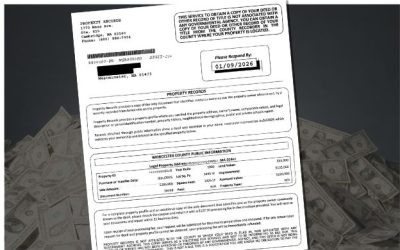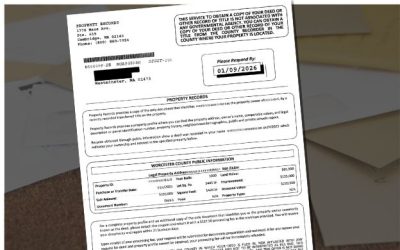
Dec 11, 2025 | Around The Home, Buying Real Estate, Selling Your Home
A lot of agents and loan officers quietly panic when December hits.
The holiday season is one of the best moments of the year to build momentum while everyone else is taking their foot off the gas.
Here’s exactly how to turn December into a pipeline builder — without burning yourself out.
Offer a Year-End Home Value + Mortgage Checkup
Clients love this because it feels like a real service, not a pitch.
Pair up if you’re a lender or agent — you can do it together.
Frame it like this:
“Before tax season hits, I’m doing quick year-end home value and mortgage checkups. Want me to run one for you?”
You’ll get replies. People want clarity going into January.
Use One Holiday-Themed Post That Actually Works
Skip the generic “Happy Holidays” graphic.
Instead, use a post like this:
“If Santa dropped a new home under your tree for 2026, what town would it be in — and why?”
This drives engagement, and engagement drives the algorithm.
More visibility = more leads.
Run a ‘Plan Ahead’ List for January Sellers
A lot of sellers are secretly planning a January or February move.
Give them a blueprint before they even ask.
Create a simple checklist and send it out:
“If you’re thinking about selling in early 2026, here’s exactly what you can prep in December so you’re first out of the gate.”
They will save it.
Some will reply immediately.
Download this checklist and send to your clients!
Providing title, escrow, closing and settlement services to clients throughout Massachusetts and New Hampshire

Aug 21, 2025 | Buying Real Estate, Consumer Tips, Credit Scoring, Home Building Tips, Home Buyer Tips, Home Buying Tips, Home Closings, Home Mortgage, Home Mortgage Tips, Home Seller Tips, Home Selling Tips, Home Tips, Home Values, Homebuyer Tips, Homeowner Tips
Once upon a time, the path to homeownership started in your late 20s. Today, the median age of a first-time buyer has climbed to 38 — the highest in U.S. history. In Massachusetts and New Hampshire, where prices remain high and incomes haven’t kept pace, first-time buyers make up only 24% of the market. This generational shift isn’t just a national trend — it’s reshaping local markets, too. Let’s explore why fewer young buyers are entering the game and what it means for buyers, sellers, and lenders alike.
The Shrinking First-Time Buyer Pool
In 2010, first-time buyers represented half the housing market. By 2024, that number dropped to less than a quarter. It’s not because younger generations don’t want to buy — surveys show they do — but the financial barriers are higher than ever.
For Massachusetts and New Hampshire buyers, the challenge is particularly acute. Both states rank among the nation’s most expensive housing markets, with limited inventory and bidding wars still common in desirable areas. That leaves many would-be buyers sidelined, even when mortgage rates dip slightly.
Why It’s Harder Than Ever
The income needed to buy a median-priced home has soared to over $126,000 a year, nearly 60% higher than in 2021. Meanwhile, household incomes in the region have barely budged. That mismatch has locked many younger buyers out of the market.
Millennials and Gen Z carry heavy financial baggage, from student loans to credit card balances. With Gen Z’s average personal debt topping $94,000, saving for a down payment feels more like a marathon than a sprint.
Entry-level homes — once the natural first step into ownership — are scarce. Many builders in New England focus on higher-margin luxury units, while affordable starter homes are either aging or quickly snapped up.
Younger generations are delaying marriage, children, and long-term settling, which historically drove first-home purchases. Add in higher rent burdens and inflation, and the dream of ownership is being pushed later into life.
What This Means for Sellers
If you’re selling in Massachusetts or New Hampshire, this trend could mean fewer young families competing for your property. That may soften demand in some price brackets, especially for entry-level homes. On the flip side, it also means that when younger buyers do show up, they’re highly motivated — and often well-prepared with family support, FHA financing, or cash gifts.
What This Means for Lenders
Lenders can’t assume yesterday’s products will work for today’s market. Winning over first-time buyers requires:
- FHA and low down payment options to lower the entry barrier
- Alternative credit scoring (including rental and utility history) to qualify more applicants
- Digital-first lending to meet younger buyers where they are
- Educational resources to guide cautious, debt-burdened buyers through the process
The lenders who succeed won’t just hand out mortgages — they’ll provide tools, trust, and guidance.
What This Means for Buyers
If you’re a first-time buyer in MA or NH, you’re not alone in feeling like the deck is stacked against you. But there are pathways forward:
- Explore FHA or MassHousing programs that reduce down payment hurdles
- Work with a closing attorney early to understand costs and risks
- Consider expanding your search beyond major metros into more affordable towns or suburbs
The shrinking pool of first-time buyers isn’t just a statistic — it’s a reality that shapes how homes are bought, sold, and financed in Massachusetts and New Hampshire. For buyers, it means persistence and planning. For sellers, it means understanding who your likely buyers really are. And for lenders, it means rethinking old playbooks to stay relevant.
At The Law Office of David R. Rocheford, Jr., P.C., we help buyers, sellers, and lenders adapt to today’s challenges and keep closings on track.
Ready to navigate the new landscape? Contact us today
Providing title, escrow, closing and settlement services to clients throughout Massachusetts and New Hampshire
“I would highly recommend David as a closing attorney. I have known David and have been using his office for many years. David’s professionalism when dealing with me, my closing department and most especially my clients has been always exemplary.”
SENIOR LOAN OFFICER, SHAMROCK FINANCIAL SERVICES
“The Law Office of Attorney David R. Rocheford, Jr. is by far the most exceptional real estate law office that I have had the pleasure of working with. The professionalism is by far second to none.”
SENIOR LOAN OFFICER, SALEM FIVE MORTGAGE SERVICES
“Attorney David Rocheford has provided settlement and title services for me and Greenpark Mortgage several years. He has assisted all of my clients, including my family and friends with mortgage closings. Always providing excellent service. Reliable and trustworthy!”

Jun 19, 2025 | Around The Home, Around The Hoome, Artificial intelligence, Buying Real Estate, Chapter 7 Bankruptcy, Consumer Tips, Credit Scoring, Fair Housing, Federal Reserve, FHFA, Financial Crisis, Financial Fraud, Financial Reports, Foreclosure, Happy Thanksgiving, Holidays, Home Building Tips, Home Buyer Tips, Home Buying Tips, Home Care, Home Care Tips, Home Closings, Home Decorating, Home Financing Tips, Home Maintenance, Home Mortgage, Home Mortgage Tips, Home Seller Tips, Home Selling Tips, Home Tips, Home Values, Homebuyer Tips, Homeowner Tips, Housing Analysis, Housing Market, Interesting Stuff, Investment Properties, Legislation, Market Outlook, Mortagage Tips, Mortgage, Mortgage Guidelines, Mortgage Lenders, Mortgage Rates, Mortgage Tips, mortgage-rates-whats-ahead-september-17-2012, News, Organization Tips, Personal Finance, Probate Law, Rankings, Real Estate, Real Estate Agent Information, Real Estate Definitions, Real Estate Tips, Real Estate Trends, Realtors, Selling Real Estate, Selling Your Home, Short Sales, Statistics, Success, Taxes, The Economy, Title Insurance
Whether you’re buying with cash, investing from abroad, transferring property to a family member, or just trying to close without a headache, you’ll want to know what can trigger federal scrutiny — and how to stay off the radar.
From flagged wire transfers and shell companies to gift-of-equity sales and land near military zones, this isn’t your average title-and-keys situation.
It’s real estate with a side of national security, tax enforcement, and financial crime prevention.
Is Big Brother Watching Your Home Sale?
What Buyers and Sellers Should Know About Federal Oversight
You’re Not Paranoid — They Might Actually Be Watching
What you didn’t know on how federal agencies keep tabs on select real estate transactions.
Your Closing Packet Could Be a Federal File
How Your Paper Trail Might Raise Red Flags — And What You Can Do About It
What the FBI, IRS, and Homeland Security
Could See in Your Closing Docs
We’re unpacking what agencies might spot inside your deal’s fine print.
Caught in the Crosshairs? What Triggers Federal Interest in Your Home Sale
The Top Red Flags That Could Invite a Closer Look from Washington
Cash, LLCs, or Land Near a Base? You Might Just Be a Target
The warning signs that put your deal on the government’s radar — and how to stay clear.
Follow the Money: How the IRS Tracks Financial Crimes Through Real Estate
From Unreported Income to Shell Game Schemes
— What IRS-CI Is Looking For
Your Closing Could Be an Audit Trigger — Here’s How the IRS Sees It
Explore the patterns, documents, and loopholes that turn ordinary deals into criminal cases.
Providing title, escrow, closing and settlement services to clients throughout Massachusetts and New Hampshire
“As a realtor, the Rocheford team went above and beyond to make sure my client was not only protected from a legal standpoint but also operated in a timely manner to execute the sale of my client’s dream home.
Thank you for the great experience for myself and my client! Looking forward to our next deal together!”
Realtor®
“I don’t usually use attorneys that often. But if an attorney is needed, I couldn’t recommend this law office enough. I always pride myself on responding quickly to emails and calls, but I was in awe of how fast paralegal Robert Heckman would respond to us. We sold our house a couple months ago and then did a two-part land swap with neighbors and my folks, and both transactions were seamless, including coming in to sign paperwork.
In short, if you need a law office that is responsive and attentive to detail, definitely consider them!”
Leominster, MA
“Excellent, conscientious and professional.
The communication throughout our Real Estate transaction was better than expected. We thought the fee to be very reasonable considering the work accomplished on our behalf. The law office handled the entire closing without us having to be in attendance….as we requested. I have had experience with very competent lawyers and law firms as the result of my previous profession. I would place this law office right up there among the best in their real estate field of expertise and surprisingly at very reasonable and affordable rates/fees.”
Buzzards Bay, MA

Jun 19, 2025 | Buying Real Estate, Financial Fraud, Home Closings, Home Mortgage, Home Seller Tips, Realtors, Statistics, Taxes
Cash, LLCs, or Land Near a Base? You Might Just Be a Target
In today’s security-conscious environment, real estate deals aren’t just between buyers and sellers — they’re being watched, analyzed, and sometimes flagged by federal agencies. And while the average home transaction flies under the radar, certain combinations of factors can put your deal squarely in the government’s crosshairs.
This post outlines the most common red flags that trigger federal interest — not because you’ve done something wrong, but because your transaction fits a high-risk profile.
All-Cash Purchases Over Federal Thresholds
All-cash deals aren’t inherently suspicious — but they circumvent the checks that come with traditional financing. That’s why they’re monitored more closely, especially in certain cities.
Triggers Scrutiny When:
- Purchase occurs in a FinCEN Geographic Targeting Order (GTO) region (like Boston, Miami, NYC, etc.)
- Buyer uses an entity (LLC, trust, partnership) rather than a personal name
- No mortgage or lender involvement, making the source of funds opaque
Check if your city is on FinCEN’s GTO watchlist
Foreign Buyers Purchasing Near Sensitive Locations
If you’re selling land or property near a military base, seaport, or energy facility, and your buyer is a foreign national or foreign-controlled company, your deal may come under review.
Triggers Scrutiny When:
- Buyer is from a geopolitically sensitive country (e.g., China, Russia, Iran)
- Property is within 100 miles of a designated sensitive site
- Transaction lacks full ownership transparency
Learn how CFIUS flags foreign real estate transactions
Use of Shell Companies or Anonymous Trusts
The U.S. government is increasingly focused on beneficial ownership transparency — knowing who is actually behind the deal.
Triggers Scrutiny When:
- The entity used is registered in a secrecy jurisdiction (Delaware, Cayman Islands, etc.)
- There is no clear beneficial owner disclosed at closing
- Documents reference multiple layers of ownership
See how the Corporate Transparency Act impacts real estate deals
Unusual Transaction Patterns or Repeated Flipping
Agencies like the IRS and FBI monitor the real estate market for signs of fraudulent investment behavior or tax evasion schemes.
Triggers Scrutiny When:
- Property is bought and resold quickly at an inflated price
- There’s a series of transactions between related parties
- Funds move between multiple accounts or buyers during closing
FBI tips on recognizing property flipping fraud
Wire Transfers from High-Risk Countries or Banks
Closings often involve multiple wire transfers — but not all financial institutions are treated equally. Some are flagged for lax compliance standards or sanctions risks.
Triggers Scrutiny When:
- Funds are transferred from offshore accounts with unclear sourcing
- Transfers pass through non-U.S. banks flagged by the Treasury Department
- The transfer amount and origin don’t match the buyer’s stated income or citizenship
Check OFAC’s sanctions lists (used by Homeland Security and Treasury)
How to Avoid Red Flags — Without Wrecking Your Deal
You don’t need to avoid cash, trusts, or foreign buyers altogether — but you do need to approach them with transparency and legal oversight.
Here’s how to protect your closing:
- Use a qualified closing attorney who knows what will raise compliance concerns
- Disclose beneficial ownership if you’re buying through a business or trust
- Avoid unusual structuring (like passing ownership through a friend or nominee)
- Keep clean documentation for funds, identity, and intent
Smart Deals Don’t Get Flagged — They Get Cleared
At The Law Office of David R. Rocheford, Jr., P.C., we know how to structure your closing so that it passes every test — legal, financial, and federal. Whether you’re selling to a foreign buyer or buying with cash, we keep your transaction clean and compliant.
Providing title, escrow, closing and settlement services to clients throughout Massachusetts and New Hampshire
“I would highly recommend David as a closing attorney. I have known David and have been using his office for many years. David’s professionalism when dealing with me, my closing department and most especially my clients has been always exemplary.”
SENIOR LOAN OFFICER, SHAMROCK FINANCIAL SERVICES
“The Law Office of Attorney David R. Rocheford, Jr. is by far the most exceptional real estate law office that I have had the pleasure of working with. The professionalism is by far second to none.”
SENIOR LOAN OFFICER, SALEM FIVE MORTGAGE SERVICES
“Attorney David Rocheford has provided settlement and title services for me and Greenpark Mortgage several years. He has assisted all of my clients, including my family and friends with mortgage closings. Always providing excellent service. Reliable and trustworthy!”

Jun 19, 2025 | Buying Real Estate, Consumer Tips, Federal Reserve, Financial Fraud, Financial Reports, Home Buyer Tips, News, Selling Real Estate, Selling Your Home
Your Closing Packet Could Be a Federal File — Here’s Why
When you’re finalizing a real estate transaction, your focus is likely on the price, terms, and closing date — not on what a federal agency might find in your paperwork. But if certain conditions apply, your stack of signed documents could become part of a federal investigation.
From title fraud to suspicious wire transfers, real estate closings contain exactly the kind of data federal agencies use to detect fraud, money laundering, or foreign interference. Let’s break down the key documents that could raise red flags — and how to keep your transaction clean.
Settlement Statements (CD/HUD-1): Show Me the Money
These documents detail the financial anatomy of your transaction — where the money is coming from and where it’s going.
Agencies like the IRS Criminal Investigation Division (IRS-CI) and Homeland Security Investigations (HSI) use these to detect:
- Undisclosed cash sources
- Overstated or fake expenses
- Unusual wire transfers or third-party contributions
IRS-CI investigates tax evasion and unreported income often spotted through property records.
Learn how IRS-CI tracks financial crimes through real estate
Power of Attorney or Signature Authority: Who’s Really Involved?
Documents granting someone else signing authority — especially in cash or trust purchases — can prompt FBI interest if:
- The grantor isn’t properly identified or verified
- A straw buyer is suspected (someone buying on behalf of an undisclosed party)
- The purchase is connected to shell companies with no clear owner
These red flags are commonly tied to fraud and money laundering investigations.
Read the FBI’s guidelines on common real estate fraud patterns
Proof of Funds or Bank Letters: Show Your Work
Cash buyers are often asked to show proof of funds, but not all banks or letters are equal in the eyes of compliance officers.
Federal agencies may scrutinize:
- Large transfers from offshore accounts
- Lack of financial institution transparency
- Inconsistencies between stated income and assets
Homeland Security Investigations (HSI) targets international financial crimes — especially involving real estate.
See how HSI investigates financial crimes tied to real estate
Entity-Based Transactions: LLCs, Trusts, and Shell Games
When a home is purchased through a legal entity — especially in cash — the title and closing documents must disclose the “beneficial owner.”
If they don’t, the transaction may:
- Violate FinCEN Geographic Targeting Orders
- Trigger FinCEN reporting requirements from title companies
- Be flagged for money laundering or sanctions evasion
Review FinCEN’s current rules for real estate ownership transparency
Tax Documents: When Closings and Capital Gains Collide
The IRS reviews real estate closings for unreported capital gains, under-the-table transactions, or misuse of tax exemptions.
Closings can trigger audits when:
- Sale proceeds are underreported
- A home is falsely claimed as a primary residence
- Form 1099-S isn’t issued when it should be
Sellers attempting to avoid tax obligations through title maneuvering or “gift-of-equity” deals should be cautious.
Understand when Form 1099-S is required in real estate transactions
What You Can Do (Besides Panic)
You don’t have to be laundering millions or working for a foreign government to attract unwanted attention. In most cases, red flags are raised by incomplete, inconsistent, or unexplained paperwork. Here’s how to stay ahead:
- Work with a closing attorney who understands both the legal and compliance landscape
- Avoid cutting corners on financial disclosures or title documentation
- Be honest and thorough when structuring transactions involving trusts, foreign buyers, or LLCs
Want to Keep the Feds Out of Your Closing?
Our team at The Law Office of David R. Rocheford, Jr., P.C. ensures every “i” is dotted and every “t” is lawyer-checked. We review your paperwork with a compliance lens — so you don’t accidentally invite scrutiny.
Providing title, escrow, closing and settlement services to clients throughout Massachusetts and New Hampshire
“I would highly recommend David as a closing attorney. I have known David and have been using his office for many years. David’s professionalism when dealing with me, my closing department and most especially my clients has been always exemplary.”
SENIOR LOAN OFFICER, SHAMROCK FINANCIAL SERVICES
“The Law Office of Attorney David R. Rocheford, Jr. is by far the most exceptional real estate law office that I have had the pleasure of working with. The professionalism is by far second to none.”
SENIOR LOAN OFFICER, SALEM FIVE MORTGAGE SERVICES
“Attorney David Rocheford has provided settlement and title services for me and Greenpark Mortgage several years. He has assisted all of my clients, including my family and friends with mortgage closings. Always providing excellent service. Reliable and trustworthy!”

Jun 19, 2025 | Buying Real Estate, Financial Fraud, Home Buying Tips, Interesting Stuff, Investment Properties, Mortgage Lenders, Mortgage Tips, Real Estate
If you’re buying or selling a home, you might assume it’s a personal, private transaction — just you, your agent, and the closing attorney. But in certain cases, federal agencies like FinCEN, Homeland Security, and even the FBI are quietly watching the real estate market.
This isn’t a reason to panic, but it is worth understanding. Here’s how — and why — the government may be involved in your next transaction:
Anti-Money Laundering: FinCEN’s Role in Real Estate
The U.S. Treasury’s Financial Crimes Enforcement Network (FinCEN) monitors real estate deals in specific high-risk areas to crack down on money laundering through all-cash home purchases.
- These regulations apply in select cities through Geographic Targeting Orders (GTOs).
- They require title companies to report the beneficial ownership of entities buying real estate in cash over certain thresholds.
- As of 2024, targeted areas include New York, Miami, San Diego, Los Angeles, San Francisco, and Boston.
Read more on FinCEN’s official Geographic Targeting Orders
CFIUS and Foreign Buyers: National Security Meets Real Estate
The Committee on Foreign Investment in the United States (CFIUS) has expanded its oversight to include foreign real estate purchases near sensitive sites, like military bases and ports.
- Under the Foreign Investment Risk Review Modernization Act (FIRRMA), CFIUS can now review real estate deals — even when no company is being acquired.
- In 2023, the Air Force raised national security concerns after a Chinese firm purchased land near a base in North Dakota.
Learn how CFIUS reviews real estate deals under FIRRMA
Read CNBC’s coverage of the North Dakota land controversy
Immigration Status & Mortgage Oversight
Mortgage lenders are required to verify a borrower’s identity and legal status — and that can intersect with immigration records. While not a direct Homeland Security audit, your file could draw attention if:
- False immigration documents are used
- Fraud is suspected on the loan application
- You’re applying for a government-backed loan, like FHA or VA
See FHA loan requirements for non-citizens
FBI & IRS Involvement: When Real Estate Becomes a Red Flag
The FBI and IRS-Criminal Investigations (CI) monitor patterns that may suggest:
- Title fraud or forged documents
- “Straw buyer” schemes where someone falsely claims to be the primary buyer
- Real estate used to hide unreported income or launder money
These agencies don’t monitor every deal, but they do act when something doesn’t add up.
Review the FBI’s real estate fraud alerts
Most buyers and sellers won’t hear from a federal agency during a transaction — but in today’s security-conscious landscape, transparency and legal compliance matter more than ever.
- Selling to a foreign investor? Disclose clearly and understand CFIUS boundaries.
- Buying in cash with a trust or LLC? Expect extra scrutiny in some cities.
- Applying for a mortgage? Make sure your documentation is accurate and legal.
As always, work with a reputable closing attorney and disclose honestly — it’s the best way to keep your deal (and your name) off anyone’s watchlist.
Want to Make Sure Your Deal Is Air-Tight?
Whether you’re buying or selling, we help you cover every angle — from contract review to full closing services. At The Law Office of David R. Rocheford, Jr., P.C., we work to keep your transaction compliant, smooth, and secure from start to finish.
Providing title, escrow, closing and settlement services to clients throughout Massachusetts and New Hampshire
“I would highly recommend David as a closing attorney. I have known David and have been using his office for many years. David’s professionalism when dealing with me, my closing department and most especially my clients has been always exemplary.”
SENIOR LOAN OFFICER, SHAMROCK FINANCIAL SERVICES
“The Law Office of Attorney David R. Rocheford, Jr. is by far the most exceptional real estate law office that I have had the pleasure of working with. The professionalism is by far second to none.”
SENIOR LOAN OFFICER, SALEM FIVE MORTGAGE SERVICES
“Attorney David Rocheford has provided settlement and title services for me and Greenpark Mortgage several years. He has assisted all of my clients, including my family and friends with mortgage closings. Always providing excellent service. Reliable and trustworthy!”





















